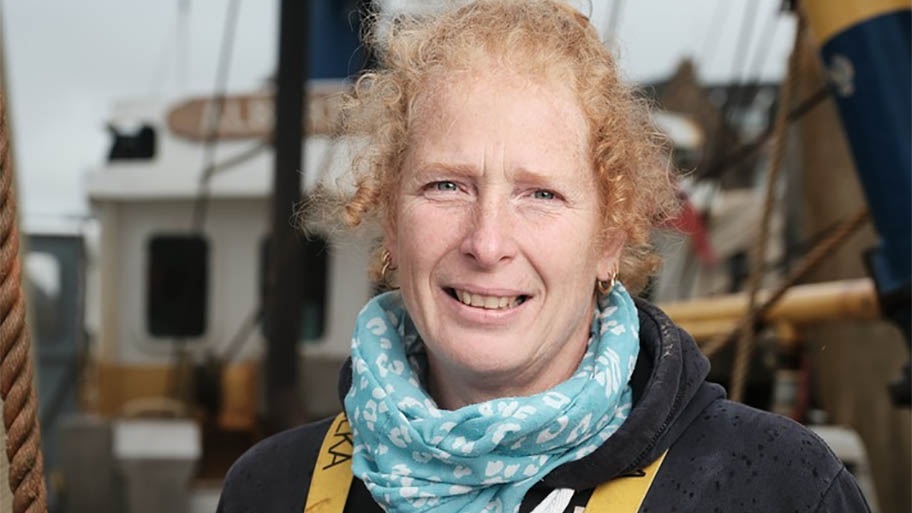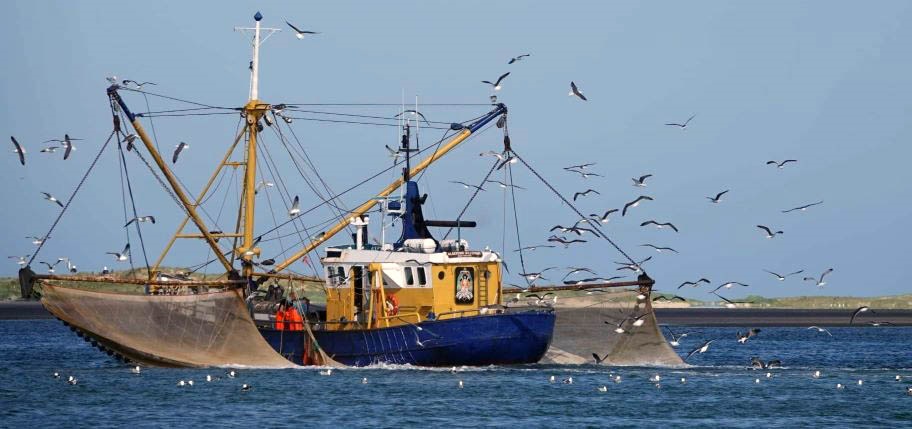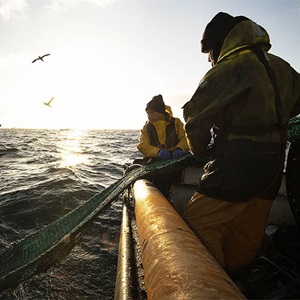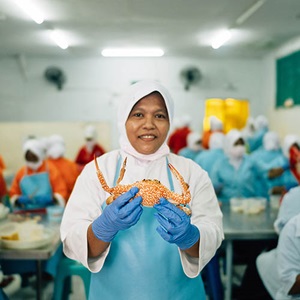When we think of the fishing industry, the dominant image tends to be of rugged men braving rough seas. But beneath the surface lies a significant, often overlooked reality: women play a vital role in this global sector.
In fact, every second job in the fishing industry is held by a woman. Women work in all areas of the fishing industry. 21% are employed in the primary sector, and the proportion of women is particularly high in artisanal fishing, fish processing and trade.
Liesbeth de Haan
Liesbeth de Haan is a fisher in the MSC certified North Sea brown shrimp fishery. Residing on Terschelling, one of the five Dutch Wadden islands, Liesbeth is one of five brown shrimp fishers in her community.In our interview below, Liesbeth shares her journey and provides insights into the daily life of a female fisher. From breaking stereotypes to championing sustainability, her experiences resonate with women worldwide who defy convention and excel in their chosen fields.
As champions of sustainability and diversity, women like Liesbeth play a pivotal role in shaping the future of fishing worldwide.

© Liesbeth de Haan
How did you enter the fishing profession?
I grew up in a small Dutch fishing village. My father purchased his first fishing vessel at the age of 19 and spent his life fishing various species, ultimately focusing on shrimps. I was actively involved in our fishing company during my time with my parents, obtaining my fishery diplomas. However, I rarely went to sea with the men due to having another full-time job. This changed many years later when my husband Willem couldn't find a suitable mate, and I was dissatisfied with my job. So, in the winter of 2019, we started fishing together.What does a typical workday look like for you?
Our days are structured around catching shrimps at night and resting during the day. We’re fishing part time. We prioritise personal care, family time, and ensuring a healthy work-life balance. The irregular schedule can be challenging, especially adjusting to switching between day and night shifts.What's the most rewarding aspect of your job?
My favourite part of fishing is the excitement during net hauls – it's always a surprise to see our catch. Witnessing the beauty of nature up close fills me with joy, reinforcing my connection to the sea and its bountiful offerings.What are the biggest misconceptions about the fishing industry?
One major misconception is the belief that fishermen want to deplete marine resources. This is far from the truth. Most fishers simply aim to earn a living sustainably, ensuring there are resources for the future. It's essential to dispel these myths and acknowledge their commitment to responsible practices.What inspired you to pursue a traditionally male-dominated profession?
I've always found it easier to work with men – communication is straightforward, and there's less unnecessary chatter. Physically, I've never had issues working alongside men due to my height and involvement in strongwomen sports. Moreover, I've never been one to conform to gender norms, preferring to follow my passions and capabilities, irrespective of societal expectations.Have you faced any challenges as a woman in the field?
Navigating societal norms and family expectations has been challenging at times. However, my husband and I have always believed in breaking stereotypes and pursuing our passions together. By demonstrating our competence and dedication, we've earned respect within the industry and among our peers.
What role does sustainability play in your profession?
Sustainability is paramount in our industry. Measures like shortened fishing times when stock sizes are declining, and using escape panels in nets to minimise bycatch are crucial. Obtaining MSC certification in 2016 was a significant milestone for us, demonstrating our commitment to sustainable practices.
Over the years, my attitude towards sustainability has evolved from awareness to active implementation. We continuously strive to minimise our environmental impact and ensure the long-term health of marine ecosystems.

What would you like to convey about the importance of sustainable fishing?
We must work together towards sustainable fishing practices to preserve our oceans for future generations. It's not just about maximising profits in the short term but safeguarding the biodiversity and viability of marine resources for the benefit of all.
Can empowering women in fisheries lead to more sustainable resource use?
Absolutely. Women bring unique perspectives and skills to the table, which can contribute to more sustainable fishing practices. Whether it's through fishing, research, or monitoring, women have a vital role to play in shaping the future of fishing.
Women often play a central role in local communities and have a broad network of relationships. These networks can be used to raise awareness of sustainable fishing practices, mobilise communities and promote collaboration between different stakeholders.
By empowering women in fisheries, we can help to ensure that different perspectives are taken into account and can promote diversity, innovation, and stewardship of our marine resources, leading to a more sustainable and equitable industry.



